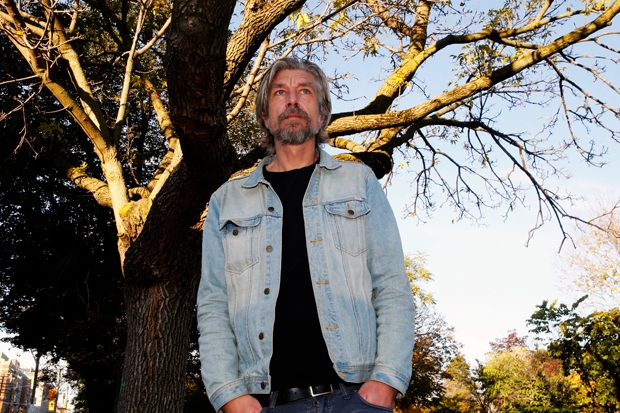It is hard to explain the contents of Karl Ove Knausgaard’s vast series My Struggle because not much happens. Or rather: a lot of things almost happen. In these strange and unquantifiable books, which feel like a spiritual autobiography but read like trashy fiction, Knausgaard recounts his ambiguous relationships with his brother and parents and wives; he describes terrible-sounding meals which he cooks (he eats a lot of pasta with dubious sauces) and the rambling, incomplete conversations he has with acquaintances. He discusses books he has read and books he would like to write. He goes out, meets girls, gets drunk, feels sorry for himself, and then goes back to his desk.
He is always on the cusp of having an adventure or suffering a calamity, but such drama is never fully realised. In total, this goes on for more than three-and-a-half thousand pages, occupying a healthy 11 inches of bookshelf. The fifth volume has just been published in English. The sixth volume is rumoured to contain an explanation of why Knausgaard — other than their common territorial ambition — has chosen to borrow his title from Hitler. There is much here to dislike, for those who wish to, but for Knausgaard’s many obsessive fans, this huge cycle is the most exciting literary project of our times.
Some Rain Must Fall finds Knausgaard in his early twenties and living in Bergen in his native Norway, where he attends a writing academy and wanders the streets and plays in a band and is generally a moony, dissolute, pretentious young intellectual. One moment, amongst the thousands, suggests the tone. He is at home and his girlfriend has just arrived:
I made the waffle mixture while she sat on the kitchen chair and watched, cooked them in the iron, brewed up some tea and took everything into the sitting room. Perhaps it was the homeliness of the waffle aroma that did it, but at any rate we started talking about having children.
His sentences are characteristically low-pressure; his style verges on the appallingly banal (‘waffle aroma’? ‘at any rate’?); and yet in one economic shift he takes us from the small details of daily life to a heart-stoppingly huge possibility, and this, surely, is the point: that our lives, when they are going well, feel something like this, and everything is connected. Knausgaard is the most humane writer in the world.
This may sound surprising, given the title and general air of Scandinavian sincerity, but he is also very funny. In one scene, he is questioned by the police following a drunken ramble about town that he goes on. The policeman asks his name, and then: ‘Have you any convictions?’ Knausgaard replies in amazement: ‘Convictions?’ Of course he has no convictions; he can hardly bring himself to be sure about anything. If this joke doesn’t also work in the original Norwegian, it is only another sign of the genius of his translator, Don Bartlett.
Perhaps the best way to talk about these extraordinary books is not in terms of events at all but as an experience. And experience is one of Knausgaard’s central themes: the experience of being in love and being humiliated, of feeling small and on top of the world. He writes beautifully, too, about the experience of reading, particularly poetry, which he claims several times not to like or understand. The experience of reading these books is a radical familiarity which is so intimate that it is at times uncomfortable, as if he has told the truth of a profound, and endlessly recognisable, human state.
Throughout Some Rain Must Fall, Knausgaard worries that he will never become a great writer, but only a critic, one who creates not novels but what he calls ‘literature about literature’. He fears that ‘There was a wall of glass between me and literature.’ He worries, too, that he is unexceptional: ‘I was the norm.’ But it is precisely in the commonness of the lovingly recorded details that these books spin their magic.






Comments